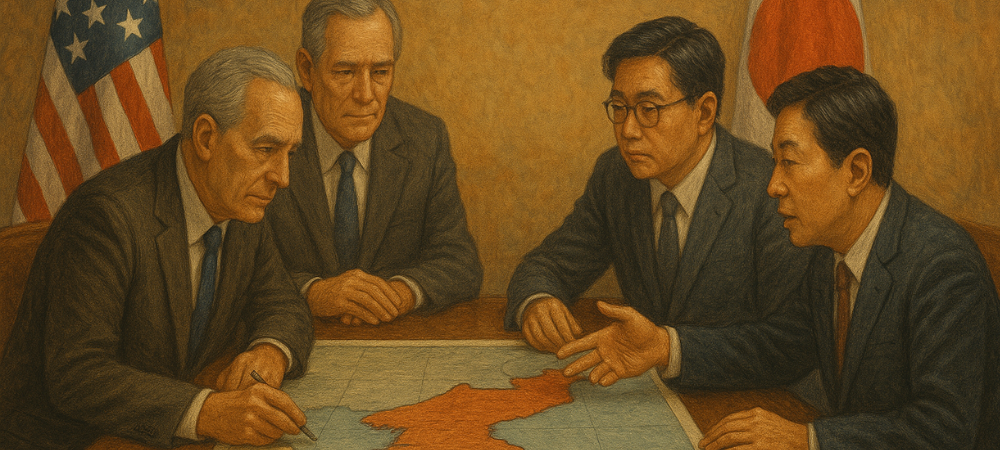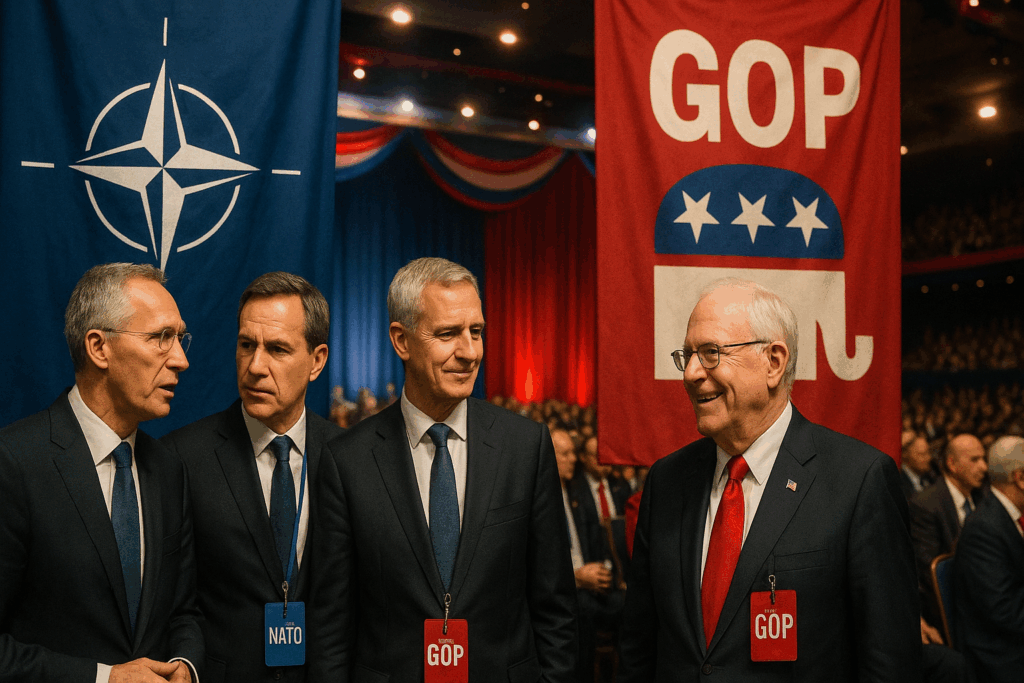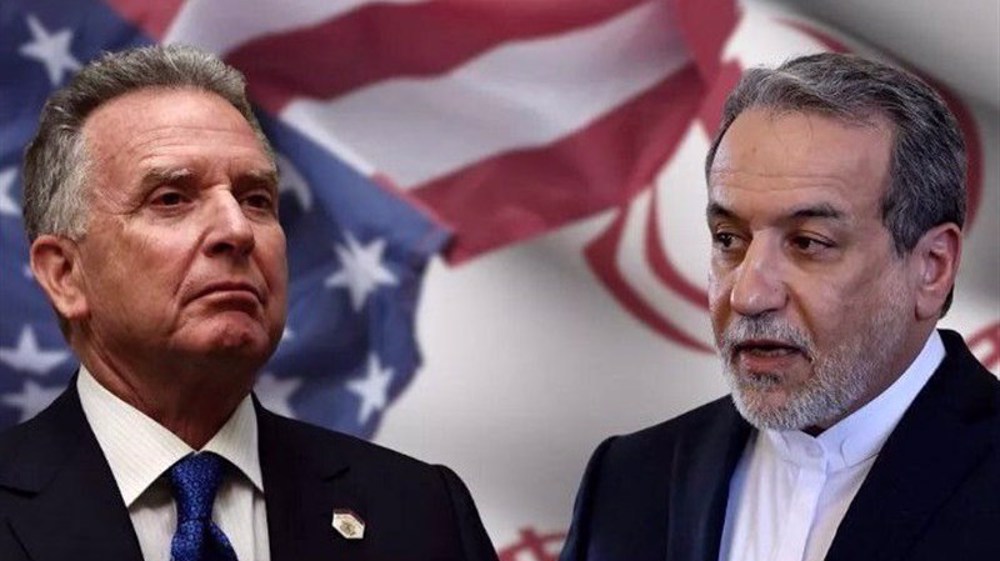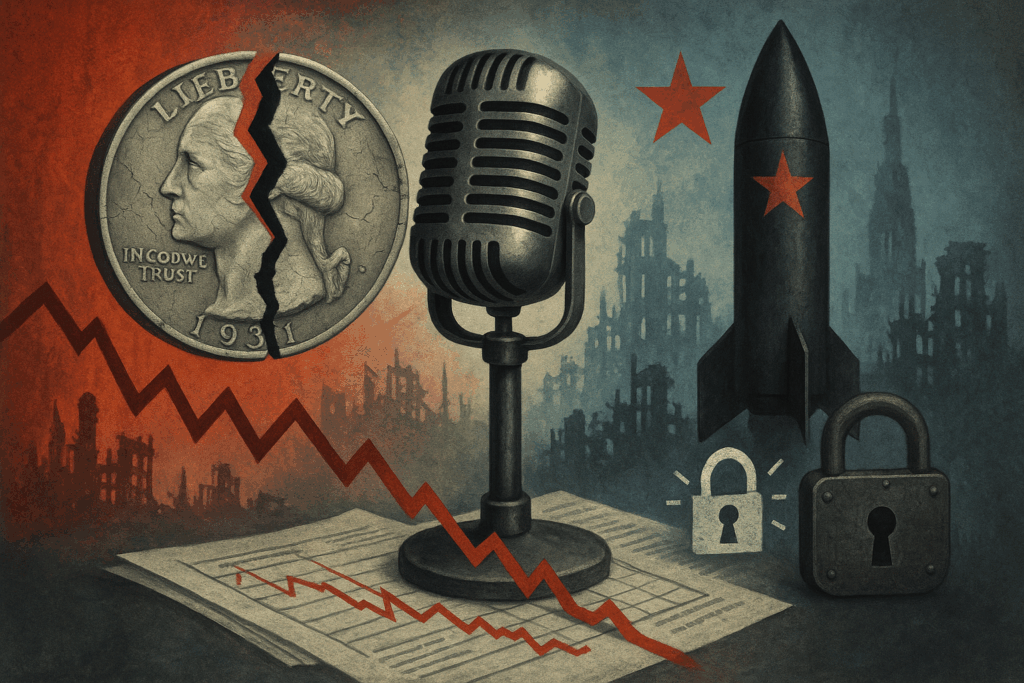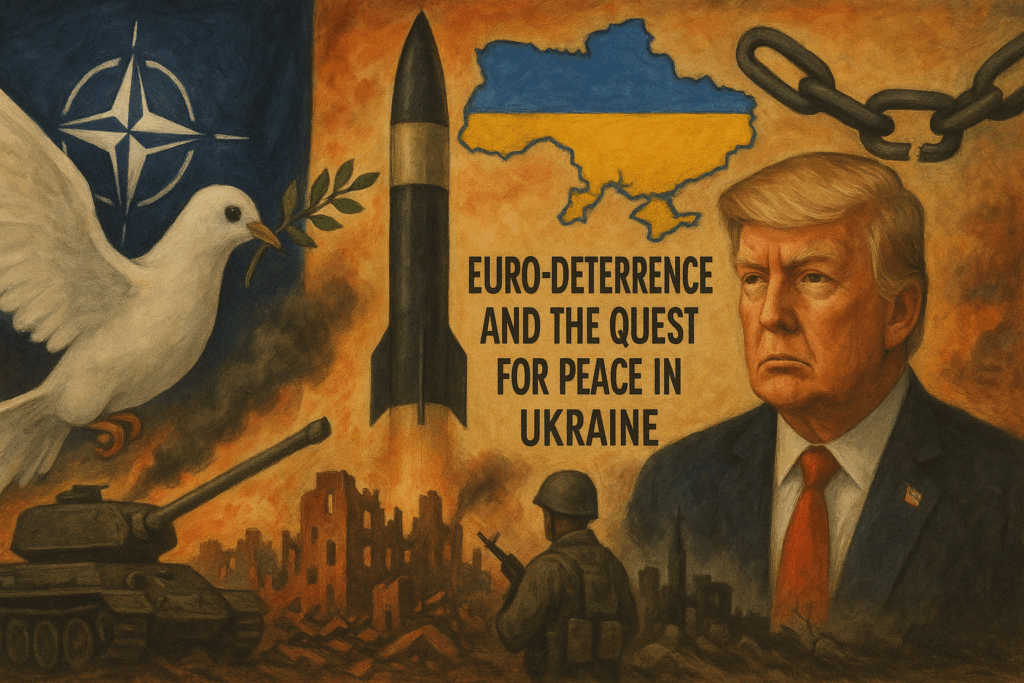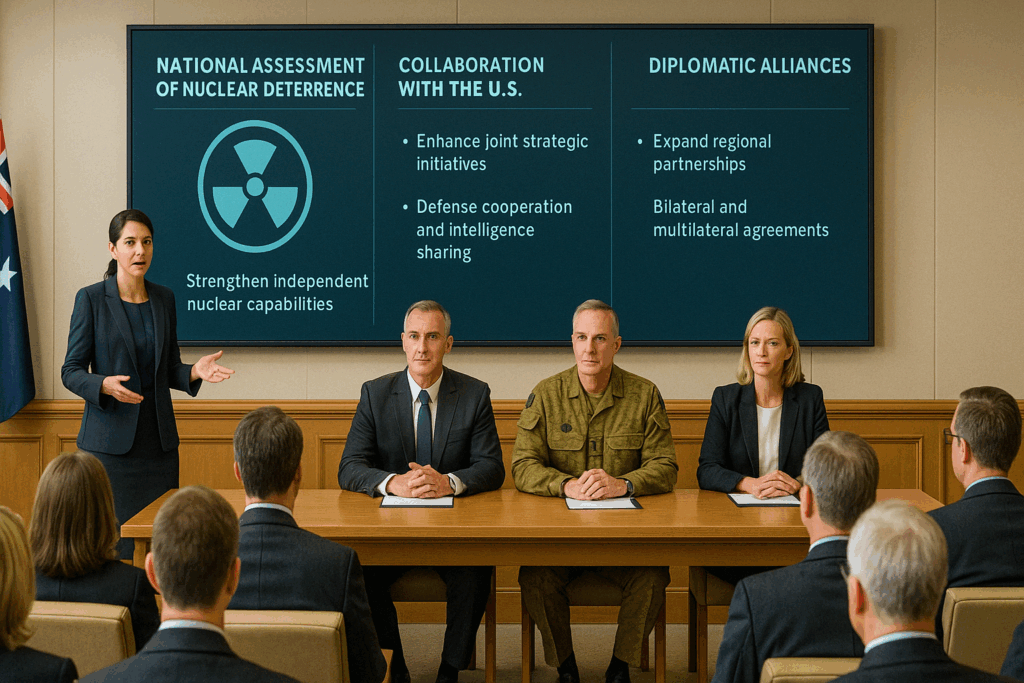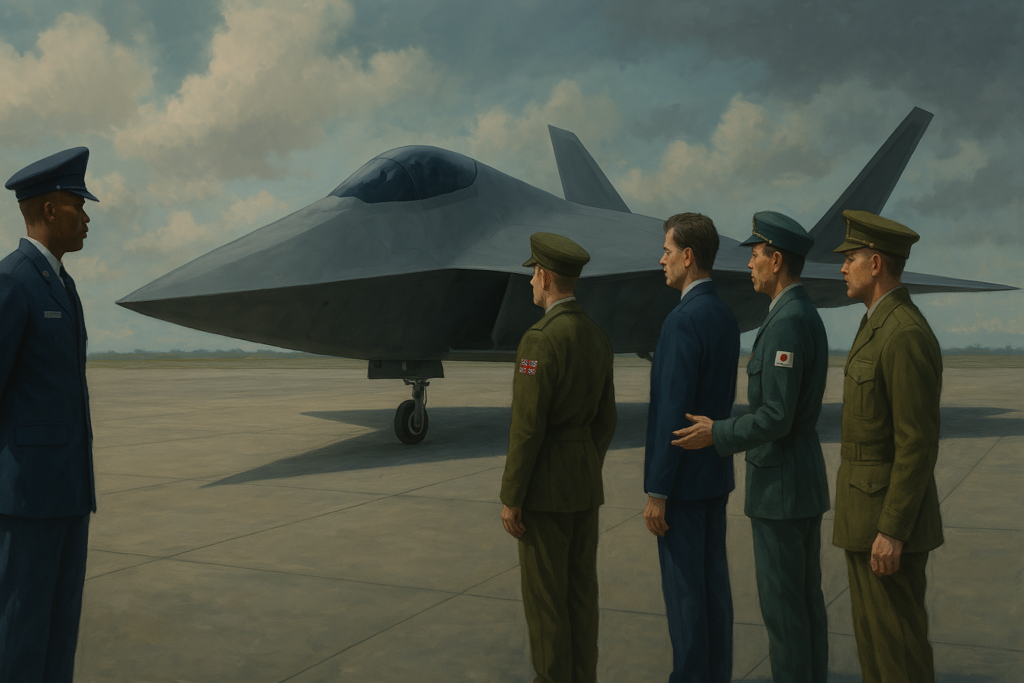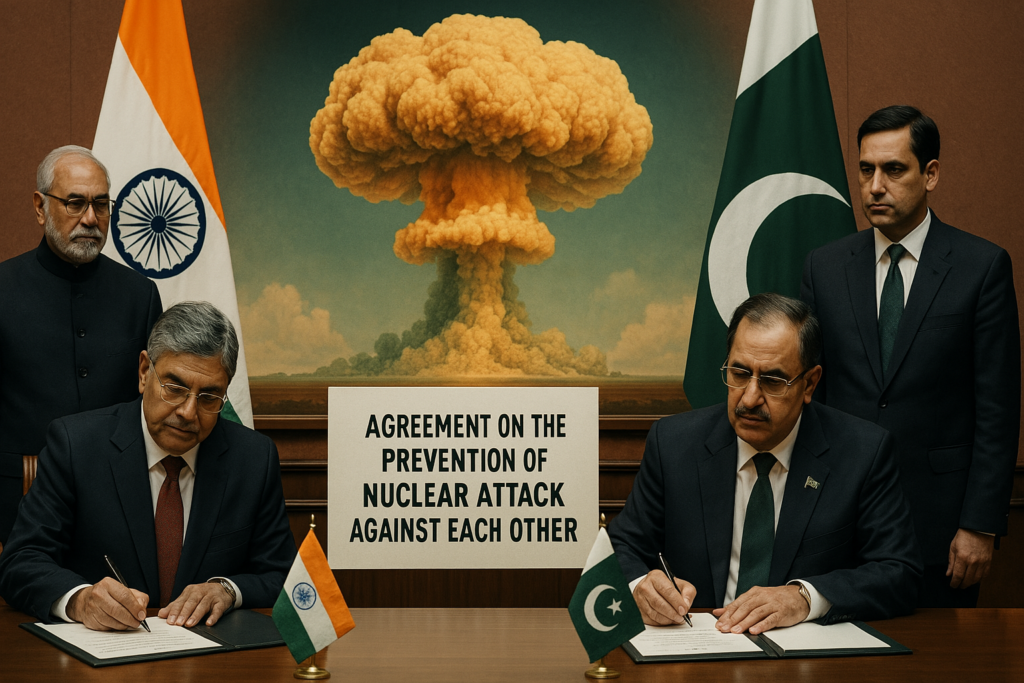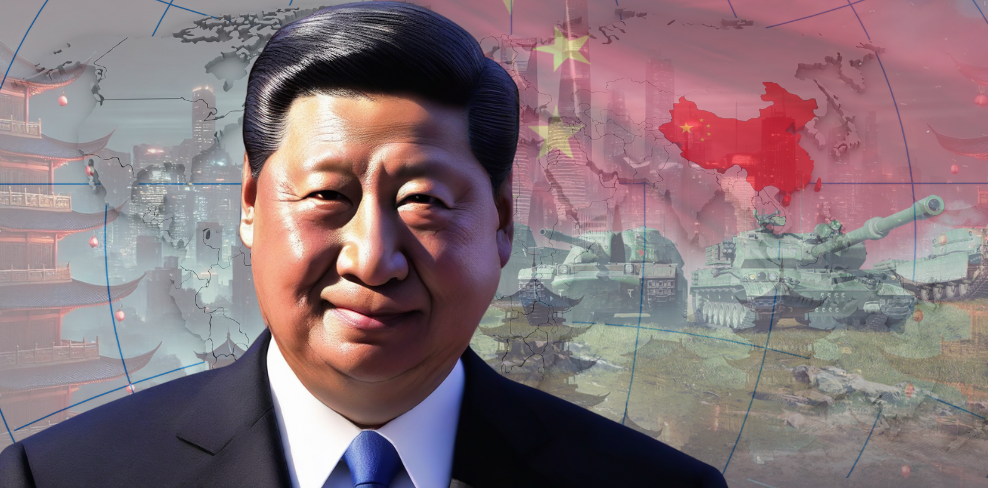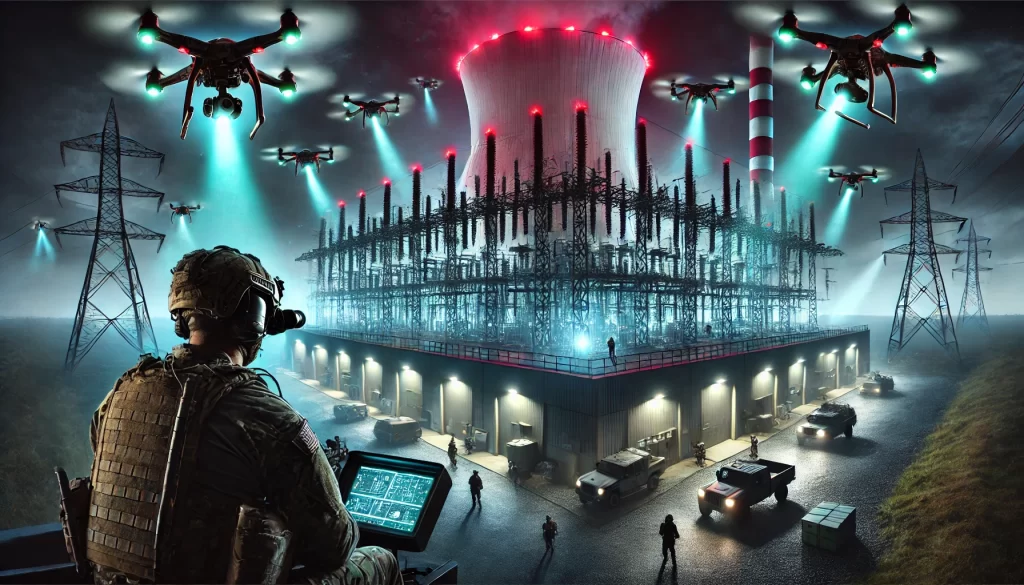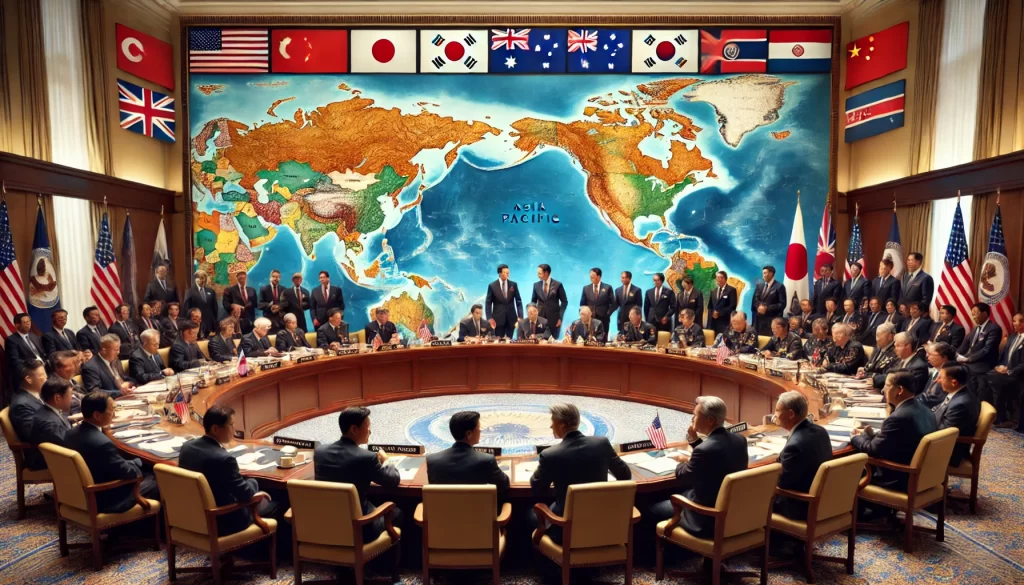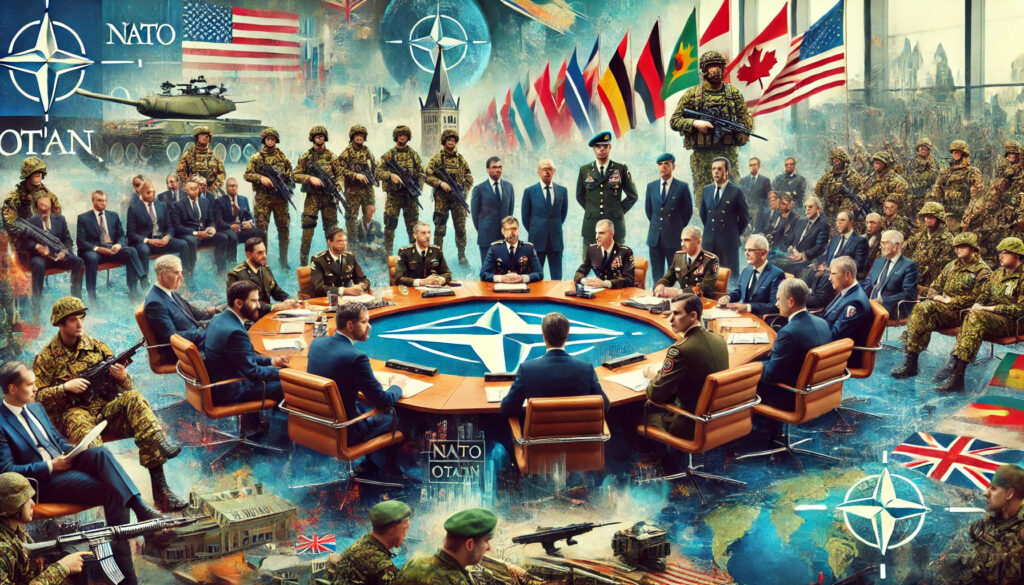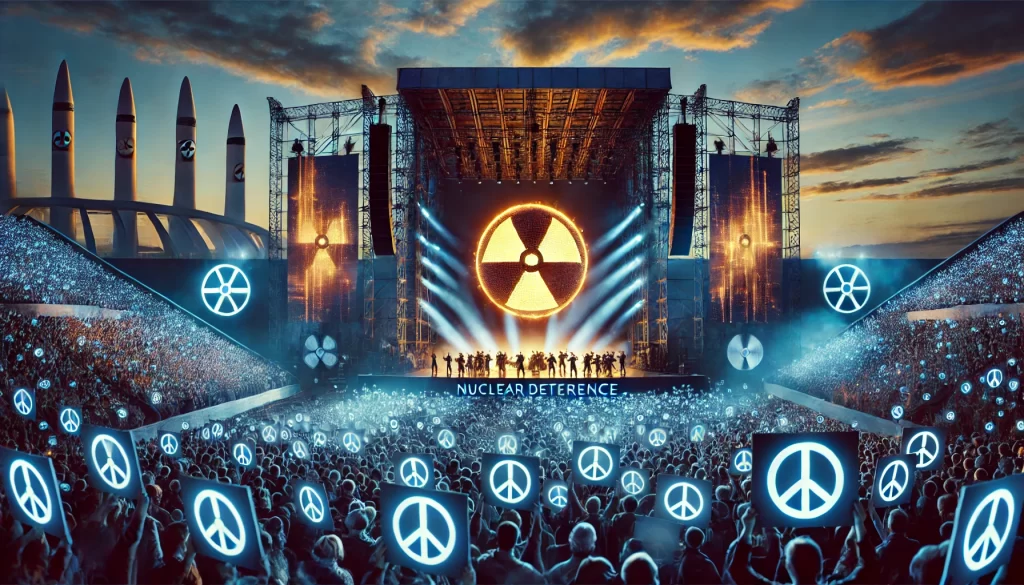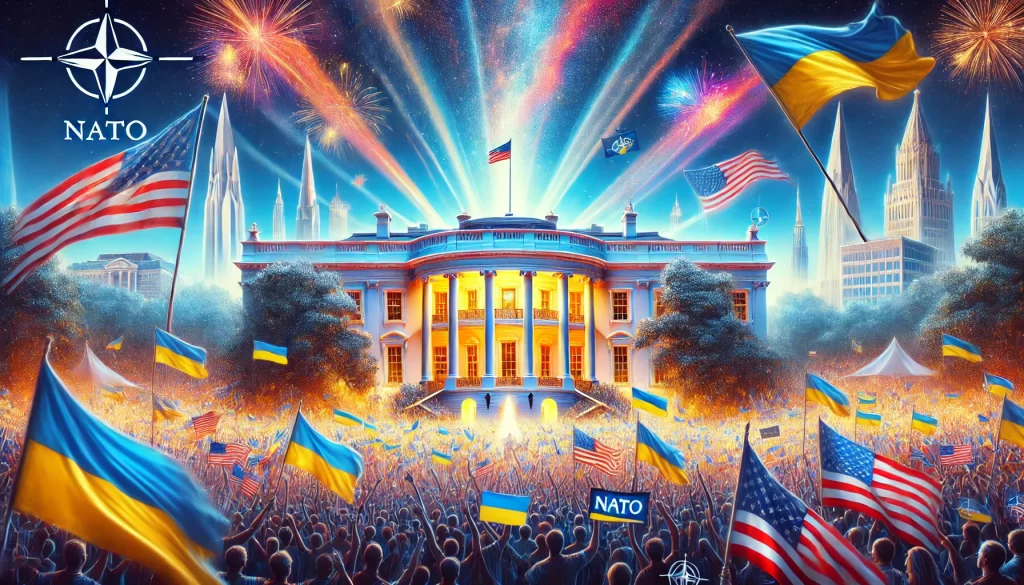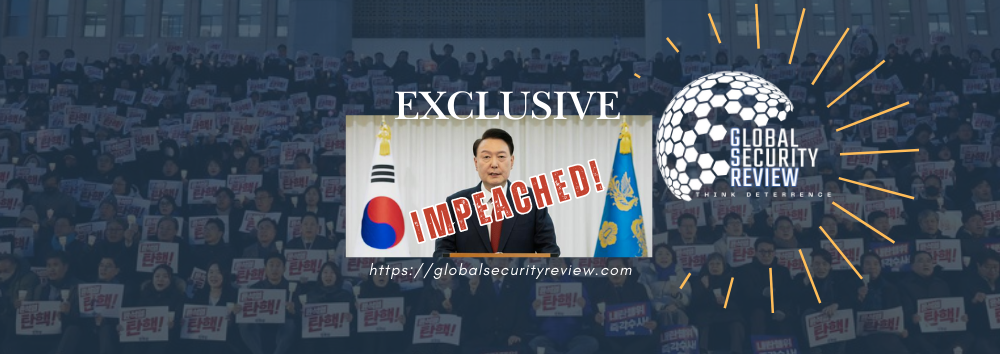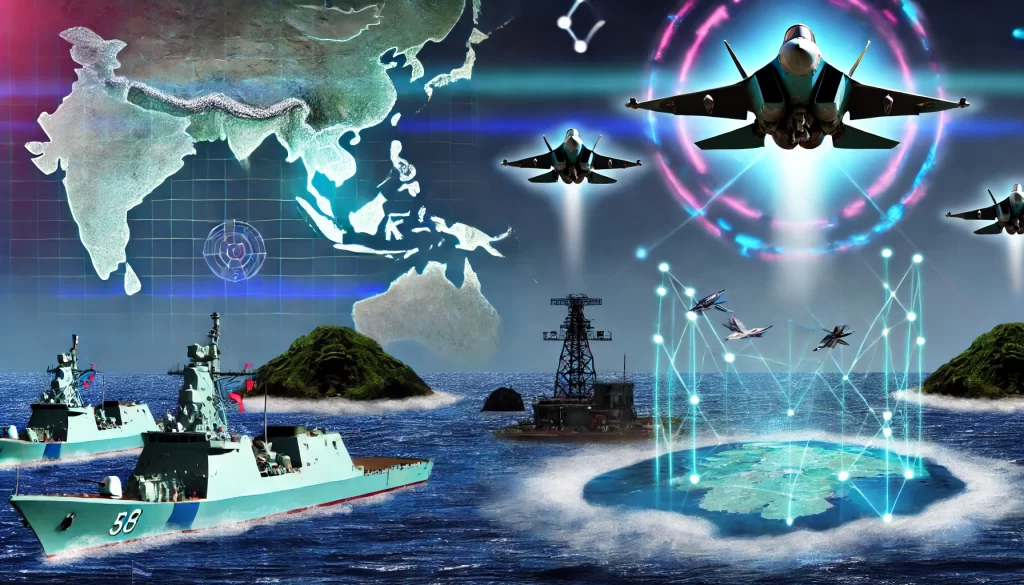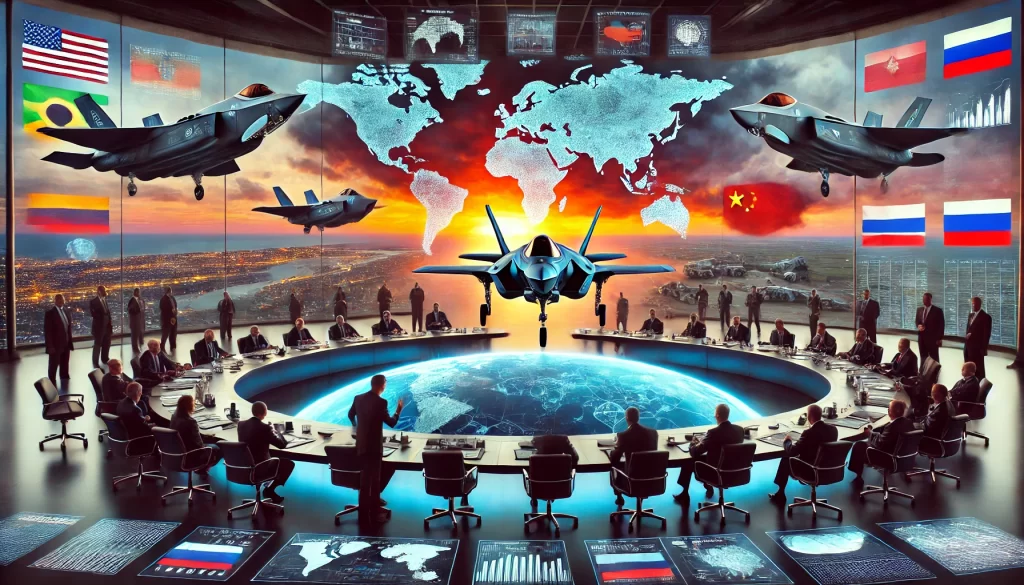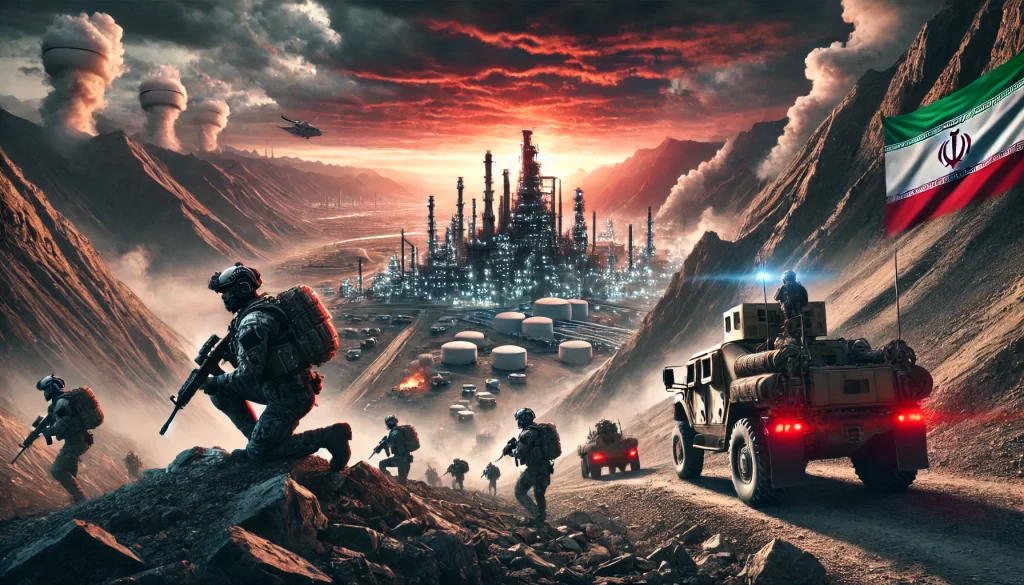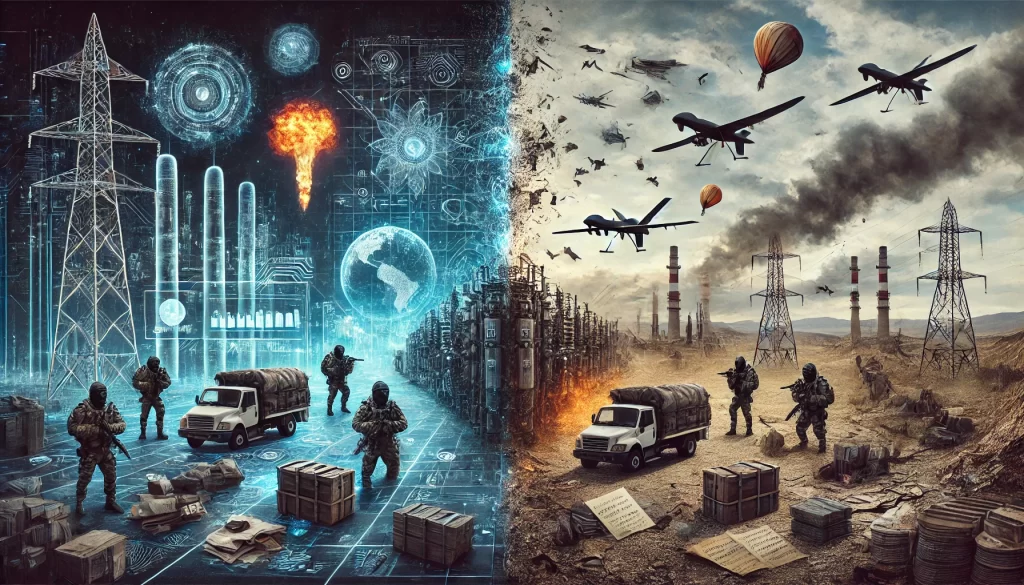Search
Archives
Iran Can Reconfigure Its Foothold in Post-Assad Syria
Since the outbreak of the Syrian civil war in 2011, Iran initially denied the presence of its forces on Syrian soil, despite evidence to the contrary. Later, Tehran was forced to confirm its involvement but branded it under the banner of “Modafean-e Haram” (defenders of the shrine), claiming to protect the Shi’a holy site of […]
China’s AI-Driven Information Operations Are Here: The US Needs an AI RMA
The DoD must incorporate artificial intelligence (AI) capabilities to counter the influence of China. Artificial intelligence will inevitably determine who shapes future conflicts. China is actively using these capabilities to gain decision dominance. Focusing on information operations is critical. Drones, for example, use artificial intelligence capabilities, as do defensive systems. However, conflict between near-peer adversaries […]
Hypersonic Weapons: Are We Entering a New Era of Vulnerability?
The advent of hypersonic weapons, with their unparalleled speed and maneuverability, ignited a global debate about the future of strategic security. Some argue these weapons unwittingly ushered in an era where traditional defenses are rendered obsolete, leaving nations exposed to swift and devastating attacks. The emergence of hypersonic glide vehicles (HGV) and hypersonic cruise missiles […]
Strengthening Nuclear Deterrence in the Far East
North Korea’s rapid advancements in nuclear miniaturization, missile technology, and multiple independently targetable reentry vehicles (MIRV) capabilities are accelerating the risk of nuclear decoupling among the US, Japan, and South Korea—undermining the credibility of deterrence in the region. Given this grave security challenge, what realistic measures can be taken to prevent nuclear decoupling? Japan and […]
FYI to the GOP on NATO
By wielding his rhetorical skills and executive powers to revive America’s political and economic institutions, President Franklin Roosevelt (FDR) transformed the first 100 days of a president’s administration into a benchmark of success for presidents that followed. President Donald Trump used the first hundred days of his second term to great effect—though not to revive […]
Nuclear Diplomacy or Regime Survival? Rethinking the Iran Deal
In response to President Donald Trump’s letter to Iran’s supreme leader, Ali Khamenei, proposing a new nuclear deal, Khamenei’s stance was unequivocal: rejection, dismissing it as “deception of public opinion.” Yet, within the Iranian government, conflicting signals emerged, with some officials suggesting the offer was under consideration. This strategic ambiguity is not new. Khamenei employed […]
Navigating the US-China Relationship: Myths and Realities
In a stark warning echoing through national security corridors, the NIDS team confronts the unsettling truths behind US-China tensions, drawing from Miles Yu’s provocative article, “A Dangerous Myth of US-China Cold War Tensions.” This is no diplomatic disagreement, it’s a brewing storm cloaked in trade deals and technology theft. Viewed through the unforgiving lens of […]
Euro-deterrence and the Quest for Peace in Ukraine
President Donald J. Trump made it a priority for the United States to midwife a ceasefire and peace agreement between Ukraine and Russia. Europeans, including members of the North Atlantic Treaty Organization (NATO) and the European Union, reacted with mixed feelings. They agree that the horrible carnage in Ukraine should come to an end. But […]
Hegseth’s Doctrine: A Rebirth and Redefinition of American Deterrence?
Secretary of Defense Pete Hegseth’s recent “Message to the Force” is not merely a call to arms; it is a strategic blueprint to reshape American nuclear deterrence. It is a bold attempt to reverse the relative decline of American military might. His vision, born from a conviction that adversaries have grown emboldened by perceived American […]
Trump’s Disintegrated Deterrence and Lessons for Australia
The American approach to deterrence has undergone a significant transformation during the initial months of President Donald Trump’s second administration. Where President Joe Biden’s national security strategy was premised on the concept of integrated deterrence, Trump’s approach lacks coordination across the United States government and with key partners and allies. This is resulting in a […]
Shahed-136: Iran’s Long-Range Drone and Its Potential Role in a US Conflict
The Shahed-136 loitering munition gained global attention due to its use in Russia’s war on Ukraine. This drone is relatively inexpensive, possesses a swarm capability, and has a precision-strike capability at extended ranges. The Shahed-136 is proving an effective weapon for the Russians. A new version, the Shahed-136B, is available for use in conflict. With […]
AI Paris Summit and Emerging Paradox of AI Haves and Have-Nots
The rapid advancement of artificial intelligence (AI) is transforming industries, economies, societies, and global politics. However, this artificial intelligence and technological revolution also exacerbates existing competitions, creating a stark divide between states that are AI haves and AI have-nots. This digital divide is not just about access to technology but also about the ability to […]
Podcast – Future-Proofing National Security: We Can’t Just Wish for Deterrence
The team at the National Institute for Deterrence Studies discusses their top three wishes for improving the nuclear enterprise and national security as we move through 2025. Jim emphasizes the need to revitalize the public’s understanding of nuclear issues and workforce development. Curtis advocates for a cultural shift towards deterrence over defense and more effective […]
Cybersecurity Framework for Maritime Port Management
Maritime ports act as mediums for international trade and transportation. They facilitate the legitime flow of trade and the transfer of goods between ships and shore. Ports have the requisite infrastructure to run routine operations, such as handling the docking of ships and cranes and management of storage facilities and warehouses. Ports not only link […]
The Sixth-Generation Fighter: A First Step to a New Generation of Airpower
The Trump administration’s decision to award the sixth-generation fighter project to Boeing is a welcome one. However, it only partially addresses the country’s airpower dilemma and how it intends to support allies in the future. From the perspective of the United States government and the US Air Force (USAF), awarding the contract to Boeing is […]
A South Asian Blueprint for Nuclear Risk Reduction
The recent drone attack on the Chernobyl nuclear power plant reignited the critical debate about the security of nuclear infrastructure in active conflict zones. It also underscored the need for a robust international framework to safeguard nuclear facilities. Such targeting of nuclear facilities, deliberate or inadvertent, poses a significant risk and sets a precarious precedent […]
Deterrence Down Under Podcast: Wargaming-A Strategic Tool for Defence with Darren Huxley and John McGarry
This conversation delves into the significance of wargaming in enhancing defence strategies in Australia. The hosts and guests discuss the definitions, types, and structures of wargames, their target audiences, and the emotional engagement they foster in decision-making. They also compare Australia’s wargaming practices with those of other countries, emphasizing the role of think tanks and […]
India’s Missile Program: A Threat to Regional and Global Peace and Stability
After India became a member of the Missile Technology Control Regime (MTCR) in 2016, it increased its missile exports and extended its market for defense exports because of its greater access to advance missile technology. MTCR membership enhances India’s credibility as an arms exporter, providing access to a wider range of potential buyers. This offers […]
Achieving Peace Through Strength: A Sustainment Imperative
Secretary of Defense Pete Hegseth’s directive to achieve “peace through strength” inherently relies on a restored warrior ethos, a rebuilt military, and reestablished deterrence. However, sustainment challenges within the Air Force—including personnel shortfalls and aging infrastructure—threaten the execution of this mission. Addressing these challenges is vital for maintaining operational readiness and strategic deterrence against pacing […]
Podcast: The Complexities of Ukraine’s Nuclear Legacy
In this episode, Christine and Natalie engage with Dr. Mariana Budjeryn, a nuclear historian, to discuss her book ‘Inheriting the Bomb’ and the complexities surrounding Ukraine’s nuclear disarmament. They explore the historical context of Ukraine’s nuclear arsenal, the narratives surrounding its disarmament, and the implications of security assurances from major powers. Mariana shares her personal […]
How Global Instability Fuels the Nuclear Arms Race
The world is in an uncertain place today and is perhaps experiencing the most uncertainty since World War II. Since the beginning of the Russian invasion of Ukraine in February 2022, the world has faced an active threat of nuclear escalation. Fortunately, Russian President Vladimir Putin has not crossed the nuclear threshold. Still, the threat […]
ICBM EAR Report Week of March 17-23
Quotes of the Week General Anthony Cotton: Emphasizes the importance of the Sentinel project and regrets the simultaneous tackling of multiple strategic modernization programs. Strategic Command: Highlights the vital role of the Nuclear Triad in national security. USAF Vice Chief of Staff General James Slife: Stresses the necessity of maintaining a nuclear […]
Xi Jinping’s Bureaucracy in 2025: A Critique
Chinese Premiere Xi Jinping remains firmly in control of China’s political landscape, with no visible plan for succession. Xi’s firm control over the Chinese Communist Party (CCP) is unprecedented in modern China, especially after abolishing presidential term limits in 2018. His lack of a clear successor suggests an intent to rule indefinitely, which may ensure […]
President Trump’s Foreign Policy Could Encourage Proliferation
In a recent White House press conference, President Donald Trump expressed his desire to renew arms control negotiations with both China and Russia. This move seeks to cut the military spending of all countries involved in half. If successful, it could ease the competitive nature that has characterized US-China-Russia relationships. Still, Trump’s overall foreign policy […]
ICBM EAR Report Week of 10 Mar
The ICBM EAR Week of March 10, 2025, prepared by Peter Huessy, covers various geopolitical and defense-related developments. Key commentary includes statements from Secretary of State Marco Rubio praising progress towards peace in Ukraine and Polish President Andrzej Duda urging the U.S. to deploy nuclear weapons to Poland. The document highlights the ironclad […]
Is Bioterrorism Really on the Horizon?
A January 2025 article published by the American Council on Science and Health detailed the results of a recent red-team activity (simulated security exercise) where a professor and two graduate students were able to manipulate their way through safety regulations and recreate the deadly 1918 Spanish flu virus. The conclusion of the scenario is that […]
AI Defense Start-ups
As the recent war in Ukraine makes abundantly clear, unmanned aerial vehicles, or drones, are firmly established as a key tool of modern warfare. Since the Russian invasion of Ukraine in 2022, both sides have made massive technological advances in their drone capabilities in what is essentially a drone production arms race. The Ukrainian government, […]
The US and Europe: A Reality Check
Europe divorced itself from reality long ago, but reality gets visitation. This was made evident like never before last month by American Vice President JD Vance. At the Paris AI Summit he emphasized freedom for private individuals and enterprises to innovate and take risks free from continuous government restrictions. Then with a coup de grace […]
Trump and Zelensky: Bad Manners or Strategic Disaster?
By any standard, the February 28 White House meeting between President Donald Trump and Ukrainian President Volodymyr Zelensky was a breathtaking fiasco. After back-and-forth discussions, the conversation degenerated into a donnybrook of apparent misunderstandings and snarky exchanges that left expert commentators and others gasping. Professional diplomats in the United States and its North Atlantic Treaty […]
Forecasting Syria’s Military and Political Future
The fall of the Assad regime has marked a watershed moment in the Syrian armed conflict, fundamentally ushering in a new phase of military and political uncertainty. This development intensified regional and international competition for influence in Syria, with profound implications for the country’s stability and the broader Middle East. Critical factors are already shaping […]
Nuclear Deterrence and Drones: An Unpredictable Mix?
On the surface, the subject matters of drones and nuclear deterrence seem far apart. Drones and other autonomous vehicle technologies already influence the conduct of war in a significant way. So far, drones’ impact is discussed in the context of conventional war. They may also have potential impact on nuclear deterrence, altering nuclear strategy by […]
ICBM EAR Week of Feb 24th
Executive Summary ICBM EAR – Week of February 24, 2025 Deterrence at a Crossroads: A Call for Strength and Resolve America is pivotal in nuclear modernization, strategic deterrence, and global security. As threats from Russia and China escalate, U.S. defense policy must adapt—or risk catastrophic consequences. Key Strategic Insights 🔹 Nuclear Deterrence Imperative – The […]
The European Dilemma: Five Percent and Manpower
The Europeans have reacted with shock and dismay at President Donald Trump’s initiatives on settling the Ukraine war. The president is wisely keeping the Europeans out of any negotiations with Vladimir Putin. Getting consensus out of the 27 members of the European Union, whose attitudes range from the maximalist position of the Baltic states to […]
Trump’s Trade and Tariff Policy Benefits America’s Nuclear Deterrent
Recently, President Donald Trump established a new Trade and Tariff Reciprocity Policy. In his signed memo, he stated, “It is the policy of the United States to reduce our large and persistent annual trade deficit in goods and to address other unfair and unbalanced aspects of our trade with foreign trading partners.” His memo also […]
The Geo-Political Implications of New Syria and Future Pathways
The unceremonious ouster of Syrian President Bashar al Assad marks the demise of the last Ba’athist regime in the Middle East. The end of the 54-year-long Assad dynasty can herald a new era in the fragile body politic of Syria. The relatively well-organized Hayat Tahrir al Sham rebel force liquidated the resistance power of government […]
ICBM EAR Report for 22 Feb 2025
This report, prepared by Peter Huessy for the week of February 22, 2025, covers various aspects of nuclear deterrence, defense budget developments, and geopolitical threats. Key topics include the Biden administration’s approach to nuclear escalation, Senator McConnell’s retirement and his views on restoring deterrence, and Russian official Medvedev’s nuclear threats. The House and Senate have […]
TikTok: Security Threat or Political Pawn
In modern politics, decisions often seem driven more by narrow interests than by a genuine concern for the public good. A prime example of this is the evolving stance on TikTok in American political discourse. In 2020, President Donald Trump led a campaign to ban TikTok, citing national security risks stemming from its Chinese ownership […]
Taiwan’s Nuclear What-If: Implications for U.S. Strategy and Global Security
In October 1964, the Chinese Communist Party (CCP) tested its first nuclear device at Lop Nur in China’s western Xinjiang province. Shocked by the test, Taiwan’s President Chiang Kai-shek was convinced Taiwan needed nuclear weapons. In 1966, he directed the establishment of the military-controlled Chung Shan Institute of Science and Technology (CSIST) and made nuclear […]
ICBM EAR Week of February 10, 2025
Key Takeaways from: ICBM EAR Week of February 10, 2025 Overview The report, prepared by Peter Huessy, comprehensively assesses nuclear deterrence, strategic security issues, and emerging threats. It includes key quotes from U.S. leaders, updates on nuclear modernization, policy discussions, and geopolitical analysis. Key Themes & Highlights Strategic Nuclear Posture & Modernization: U.S. nuclear deterrence […]
Iron Dome America Is Not a Threat to Peace
Recently, opponents of missile defenses published editorials in several outlets accusing the Trump administration of “conjuring” up an “arms race” that will severely damage “strategic stability by proposing an Iron Dome for America. This view is ill informed at best and severely dangerous at worst. There are several reasons this is true in the great […]
Beyond the Atmosphere: Strengthening US Space Deterrence in a Contested Domain
In November 2021, Russia launched an anti-satellite (ASAT) missile test that destroyed one of its own defunct satellites. This act generated thousands of pieces of space debris. It also underscored a growing reality; space is no longer a sanctuary but a contested warfighting domain. As adversaries such as China and Russia develop counterspace capabilities, the […]
Congratulations on Becoming the Secretary of Defense
Secretary Hegseth, It is good to have a combat veteran as the new Secretary of Defense. It is also good to have someone who, while writing a book on the current state of the military, came to understand the difficulties service members face, why they choose not to resign or not re-enlist, and how hard […]
American Sanctions and Pakistan’s Strategic Realities
A diplomatic controversy erupted following the recent imposition of American sanctions on Pakistan’s state-owned National Development Complex (NDC) and three private Karachi-based companies, accused of involvement in developing Pakistan’s long-range missiles. These sanctions, which bar American companies from conducting business with them, brings to light a different approach by the US toward a non-NATO ally, […]
Nuclear Order and Disorder in the Asia-Pacific
The world is entering a new era of nuclear disorder. This new era is characterized by several elements. They include the breakdown of nuclear (and conventional) arms control, the return of superpower competition, the return of conventional war, the normalisation of nuclear threats in both Europe and the Asia-Pacific, the rapid growth of Chinese and […]
“Peace Through Strength”: Enhancing America’s Nuclear Deterrence Today
Immediately after being sworn in as the nation’s 29th Secretary of Defense, Pete Hegseth established three guiding principles: (1) restore the warrior ethos in everything we do, (2) rebuild the military, and (3) reestablish deterrence. According to Secretary Hegseth, “We don’t want to fight wars; we want to deter them.” This captures the essence of […]
Navigating the New Frontier: Agentic AI’s Promise and Challenges
Artificial intelligence (AI) is entering a new era with the rise of agentic AI, a groundbreaking innovation redefining how machines interact with the world and perform tasks. Unlike traditional AI systems that operate within the bounds of human-defined algorithms and instructions, agentic AI stands apart because it can act autonomously, adapt to changing environments, and […]
Azerbaijan-Israel Strategic Relationship Proves Its Importance
With the opening of the Azerbaijani trade office in Israel in 2021 and the embassy in 2023, Azerbaijan-Israel strategic relations reached a new level. The partnership covers a wide range of vital areas, including energy, defence and security, transport, agriculture and the environment, water resources, culture, and advanced technology. Science and education are part of […]
ICBM EAR for 23 Jan 25
ICBM Ear for the Week of January 23, 2025 Prepared by Peter Huessy, President of Geostrategic Analysis and Senior Fellow at the National Institute for Deterrent Studies Key Takeaways Significant Military Budget Increase in Russia: Russia’s defense spending will rise by 25% to 13.5 trillion rubles (~130 billion euros), continuing its high military expenditure trend. […]
Deterrence and NATO’s Emerging Security Environment
The international security environment is deteriorating rapidly and becoming increasingly dangerous and uncertain. China, Iran, North Korea, and Russia pose a threat to Western interests in multiple domains. Among them are economic, conventional, and nuclear, as well as emerging domains such as cyber and space. The Arctic and the deep sea are also areas where […]
The New Era of DIY Warfare
It is a cold and foggy morning in Chasiv Yar, a city in Ukraine close to Bakhmut. Four men with American accents, dressed in military equipment and surrounded by weaponry, are talking in a compact log bunker. All are in good spirits, laughing about how one was able to survive being hit by a Russian […]
Not Today: A Nuclear Deterrence Analogy
My family is in the season of teenagers. Clearly the music I grew up on and what my kids listen to today could not be more different. That said, a closer look at the lyrics and purpose behind the music can offer a very telling story, especially when seeking to bridge the gap in one’s […]
The Future of US-Pakistan Relations
President Donald Trump’s return to the White House may or may not prove auspicious for Pakistan. Trump’s victory will certainly have wide-ranging ramifications for the geopolitical chessboard because of existing challenges to international order. It could potentially transform the fabric of international cooperation. No region will remain untouched. South Asia will be no exception. Most […]
ICBM EAR Report 13 Jan 2025
The ICBM EAR report provides a detailed assessment of the U.S. nuclear deterrent’s status and future outlook, focusing on the threats posed by Russia and China. By 2035, these adversaries are projected to possess a combined 11,000 nuclear warheads, requiring the U.S. to prioritize modernization efforts to maintain a credible deterrent. The report emphasizes the […]
Donald Trump’s Iron Dome
Donald Trump’s Iron Dome? Proposal to Counter Nuclear Attack Takes Shape By: Ellie Cook, Security & Defense Reporter for Newsweek The U.S. is not prepared enough for a possible long-range missile strike from Russia, China or North Korea, a new report seen by Newsweek says, offering one potential road map for President-elect Donald Trump to piece together the American version […]
Is This the Right Moment to Act Against Iran on All Fronts?
The Middle East experienced significant geopolitical shifts over the past year. In October 2023, Hamas launched a surprise attack on Israel, resulting in approximately 1,200 Israeli deaths. Israel’s subsequent military response led to an estimated 40,000 Palestinian casualties, predominantly in Gaza. The conflict caused widespread destruction and displacement, exacerbating the long-standing humanitarian crisis in the region. It […]
An Uncertain Future for Arms Control
A strong nuclear deterrent reduces risks to the United States and the North Atlantic Treaty Organization (NATO). Such is the view of many within the nuclear enterprise. Arms control and disarmament advocates differ with this view, seeing the deterrent as a risk that must be reduced in size and function via various forms of diplomacy […]
More Political Uncertainties Affecting Europe’s Defense Build-up
Politics in Europe are growing increasingly unstable. The Starmer government in the United Kingdom (UK) is stalled and the German coalition of Gerhard Scholz dissolved, with elections coming. Under French President Emmanuel Macron, the government of Prime Minister Michel Barnier lasted barely three months, as it recently collapsed upon a no-confidence vote by a parliament […]
Trump 2.0: Unilateralism and the Future of Arms Control
As the world prepares for Donald Trump’s return to the White House, the implications for global arms control loom large. New START, the last remaining nuclear arms control agreement between the United States and Russia, is set to expire in February 2026. Russian president Vladimir Putin suspended participation in the treaty a year ago due […]
Cyber Deterrence in the Age of Semiconductors
Cyberspace is the new battleground for nations vying for global dominance. At the heart of this competition lies the semiconductor industry—a linchpin of modern technology. It is essential for computing, artificial intelligence (AI), and advanced military systems. Understanding the dynamics of semiconductor production and supply chains provides critical insights into how cyber deterrence strategies are […]
Escalation Dominance Does Matter
In a reply to a recent article in Global Security Review, which advocated for American escalation dominance, Katerina Canyon, Executive Director of the Peace Economy Project, challenged the importance of escalation dominance, instead advocating for a reduction in nuclear weapons and an increase in domestic spending. Canyon is wrong on three points: the history of the […]
ICBM EAR Report Jan, 3 2025
ICBM EAR Report Executive Summary Based on the latest EAR Report, these are the critical points on global security, upcoming events, and the ongoing discourse on nuclear deterrence, modernization, and geopolitical strategy for 2025. Quotes of the Week Xi Jinping (China): “No one can stop the historical trend” of China’s “reunification” with Taiwan.” U.S. Ambassador […]
The PRC-USA Rivalry and Taiwan
The People’s Republic of China (PRC) under the Chinese Communist Party (CCP) is a formidable force locked in a global competition with the United States for power and leadership. The PRC’s aim, since its creation 75 years ago, is to secure its autocratic governance at the minimum and, at the maximum, to recenter and reorder […]
Escalation Dominance Is a Flawed Framework
The argument for “escalation dominance” as a cornerstone of US deterrence policy, presented in Joe Buff’s recent Global Security Review article, relies on outdated Cold War logic that fails to address the complexities and ethical considerations of today’s global security environment. While the premise of maintaining deterrence is essential, the emphasis on overwhelming military capability […]
An Endgame in Ukraine
The incoming Trump administration will pick up the Ukraine dossier where the outgoing administration left it. As American leadership moves away from election rhetorics and back to the reality of governing, President Trump will attempt to bring the war in Ukraine to a negotiated resolution, but what that might look like is uncertain. The incoming […]
Now That Trump Is Back, What Should Arab States Do?
With Donald Trump’s return to the White House, Arab states already face a pivotal moment in shaping their foreign policy. Known for his transactional diplomacy and “America First” approach, Trump is likely to prioritize issues that directly benefit the US economy and enhance its strategic power, particularly vis-a-vis China and Russia. For Arab states, the […]
ICBM EAR Report for December 20th
Summary Report for ICBM EAR Report of December 20, 2024 The EAR Report is a must read for National security professionals to stay informed about rapidly evolving global threats and the strategic implications for U.S. defense policy. This report addresses critical developments in nuclear deterrence, missile defense, and geopolitical trends, and equips professionals with actionable […]
Russian Use of IRBMs in Ukraine
On November 21, 2024, Russia struck the Pivdenmash aerospace factory in Dnipro, Ukraine, with six warheads delivered by an intermediate-range ballistic missile (IRBM). Each warhead dispensed a group of six non-nuclear, kinetic submunitions. The attack, in retaliation for Ukrainian strikes on Russia using the American Army Tactical Missile System (ATACMS) ballistic missiles and British Storm […]
ICBM EAR Report December 8th
Executive Summary: Week of December 8, 2024 This report asserts that the United States is at a critical inflection point in global security, facing mounting threats from an increasingly assertive China, a resurgent Russia, and a shifting nuclear landscape characterized by rapid technological advancements and diminished international agreements. This week we underscore the critical juncture […]
Drones on the Loose
The state of New Jersey is apparently facing an invasion by unstoppable drones. This development is creating demands for investigation on the part of federal, state, and local governments. Citizens are concerned and media curiosity is at fever pitch. Contacts with foreign sources were not very informative. The Chinese Ministry of Defense denied any use […]
Plutonium-239 and Its Relationship with Uranium-235 in Thermonuclear Weapons
Plutonium-239 has an important relationship with uranium-235 when it comes to nuclear weapons. Let me explain. With the symbol Pu on the Periodic Table, plutonium is an element with an atomic number of 94, which means its nucleus has 94 protons. As a heavy metal it has many more neutrons than protons, but more on […]
How Diplomacy Can Save GPS
Imagine drones are forced to land. Rockets are deflected. Electrical grids, telecommunications, and transportation systems are degraded. Airliners are driven off course. Interference with Global Positioning System (GPS) signals is a fact of everyday life, and things are only getting worse. One example is instructive. The rate at which aircraft locations are electronically manipulated, “spoofed,” […]
South Korea: Challenges and Lessons of a Presidential Impeachment
South Korea’s presidential impeachment: Challenges and lessons for democracy. ROK Army Lieutenant General (retired) Chun In-bum examines the recent impeachment of South Korean President Yoon Suk Yeol and its implications for the nation’s democratic framework. It delves into the events leading up to the impeachment, including allegations of corruption and abuse of power, and discusses […]
The Volatility of Cryptocurrency: Barrier or Enabler of Nuclear Escalation?
The volatility of cryptocurrency markets has been a major topic of discussion since the inception of digital assets like Bitcoin and Ethereum. Its impact extends beyond financial speculation and the promise of decentralized finance. Cryptocurrency’s creation is creating distinct ripples through the global economy, even reaching security and geopolitical affairs. Among the more intriguing dimensions […]
December 6 ICBM EAR Report
December 6 ICBM EAR Report – By: Peter Huessy This week’s ICBM EAR Report is a must-read. Here is a summary of what you need to know. Notable Quotes: The week’s top quotes emphasize the importance of maintaining and modernizing the United States’ strategic deterrence capabilities to address the growing threats from peer nuclear adversaries, […]
The Pros and Cons of Nuclear Participation in the Pacific
Recently, Japan and South Korea began discussing the need for their own indigenous nuclear arsenals. Either or both might yet decide in favor of fielding their own nuclear forces. Australia has not openly talked about pursuing nuclear weapons, but as an American ally in Asia such a move may become necessary. A driving factor is […]
The Weekend Gouge- Dec 6
Learn what the Global Security Review provides its readers in China. Now is the time to create a knowledge base on this provocative adversary. In the aftermath of the U.S. Election fog, we must focus on the looming threat that marches toward us. Here is what you need to know: “China’s Growing Power and the […]
Six Hours of Crisis: Martial Law, Democracy, and Leadership in South Korea
Korea was referred to as the “Land of the Morning Calm” and the “Hermit Kingdom” by those who founded it centuries ago. These titles reflect the nation’s historical isolation and serenity. They contrast sharply with Korea’s modern history. Since the establishment of the Republic of Korea in 1948, the Korean Peninsula has experienced violent ideological […]
The Wrong Agenda for Political Debates
In the aftermath of President-elect Donald J. Trump’s election, it is time for the national political dialogue to calm down and move away from dysfunctional hyperbole. During the presidential campaign, political activists and media commentators trafficked in exaggerations and misrepresentations of facts that distracted from responsible debates on public policy. Admittedly, some of this political […]
Bolstering Extended Deterrence
As the nuclear deterrence landscape continues to change, the United States must reinvigorate its alliances and partnerships to project power effectively and effectively hold adversaries at risk. The 2022 National Defense Strategy outwardly identified the People’s Republic of China (PRC) as a pacing threat. Russia’s almost three-year war on Ukraine has also made the North […]
The Weekend Gouge
Staying informed is more critical than ever in an era of rapidly shifting global dynamics. Global Security Review delivers unmatched insights into the issues shaping our world, from examining the intricate strategies of geopolitical players to exploring innovations in deterrence and space security. Modern Escalation Dominance Is Essential to Effective Deterrence and Assurance Joe Buff […]
ICBM EAR Report – November 22
Introduction This week’s EAR Report brings critical updates on global security dynamics in a world fraught with geopolitical tensions and nuclear threats. From the evolving nuclear doctrines of major powers to the strategic imperatives of missile defense, we provide a comprehensive overview of the current state of international security. Understanding these developments is […]
Modern Escalation Dominance Is Essential to Effective Deterrence and Assurance
Defense commentators note that adversaries, prior to acting aggressively, will first calculate risks and rewards. Significant to this calculus is an evaluation of how, if at all, America is likely to respond at different stages of any intensifying aggression, that is, at different rungs on the escalation ladder. Historically, adversaries, ranging from Imperial Japan to […]
The Geostrategic Mind of Iran
The geographical position and long-standing ambitions for regional influence are long-time influences of Iran’s geostrategic thinking. As a state that controls a critical part of the Strait of Hormuz, a key global oil shipping passage, Iran’s focus is on securing dominance in the Gulf. However, Iran’s aspirations extend far beyond this region. The regime developed […]
Iran’s Threat to Azerbaijan’s Critical Energy Infrastructure
Iranian leaders increased their belligerent rhetoric following the October 1 attack in which the Islamic Republic fired nearly 200 ballistic missiles on Israel. Codenamed “True Promise,” the attack was the second direct Iranian action against Israel since April and indicates Tehran’s growing aggressiveness, which poses a significant threat in its neighbourhood. As discussions of retaliation […]
Proposing Maritime Confidence-Building Measures between India and Pakistan
There are escalating tensions between India and Pakistan in the Indian Ocean region (IOR), which underscores the need for maritime confidence-building measures (CBM) and risk-reduction strategies to avoid any probability of future conflict. Power projection by the United States, China, and India is visible in the Indian Ocean region (IOR) as they seek to assert […]
Why India Made Up with China at the BRICS Summit
For the past six years India-China relations have been at a low point with the two countries getting into skirmishes along the border. The worst of these was in 2020, at Galwan, where at least 20 Indian and 4 Chinese soldiers were killed in a brawl. Both sides subsequently took steps to militarize the border […]
Strategic Sufficiency Is Not Enough
In an August 23, 2024, webinar, Col. (Ret.) Curtis McGiffin and Adam Lowther, PhD, introduced the concept of “dynamic parity” as nuclear strategy for the next presidential administration. Their approach calls for fielding a nuclear deterrent force structure that is symmetrical in types of delivery platforms and numbers of weapons to the collective nuclear arsenals […]
ICBM EAR Report Nov 5, 2024
Summary Report Events of Significance Nuclear Deterrent Seminar: Scheduled for December 6, 2024, focusing on China’s nuclear buildup with Christopher Yeaw from the University of Nebraska. Triad Symposium: Announced for June 24, 2025, at Louisiana State University in Shreveport, hosted by LSUS, NIDS, and BRF Defense in cooperation with the USAF Global Strike Command. Quotes […]
Ukraine’s Incursion into Russia: What’s Next for the Peace Process?
In August 2024, Ukraine launched a significant incursion into Russia’s Kursk Oblast, advancing up to 30 kilometers and gaining control of 1,200 square kilometers and 93 villages. Analysts suggest the offensive aims to pull Russian forces away from the eastern front lines and secure leverage for potential peace talks. However, Russia continues to make gains […]
The Resilient Hegemon: Why America’s Global Leadership Endures
In an era where political pundits are quick to sound alarms about the impending decline of American global leadership, the reality paints a more optimistic picture. While the rise of China, the resurgence of Russia, and the saber-rattling of North Korea and Iran led some to predict a seismic shift in world power, a closer […]
Hypersonic Horizons: The Next Generation of Air Superiority
The development of hypersonic technology is poised to redefine the landscape of military airpower. Hypersonic vehicles, capable of reaching speeds greater than Mach 5, offer unprecedented speed and agility, making them a game-changer in modern warfare. This article delves into the advancements, challenges, and strategic implications of hypersonic technology, highlighting how it is set to […]
ICBM EAR Report October 28th 2024
This report provides an in-depth look at recent developments in global defense, with a particular focus on North Korea’s and Russia’s military actions and the United States’ strategic response. Readers will find insights into North Korea’s latest ICBM test and its increased alignment with Russia, including deploying troops to support Russia in Ukraine. The report […]
The Case for Space Control: An Australian Perspective
Space is an operational domain that is highly contested and in a crisis could quickly become a warfighting environment. Space is “militarized” through the deployment of satellites to support a range of terrestrial military tasks. Both the Soviet Union and the United States developed anti-satellite (ASAT) weapon technologies during the Cold War, yet it is […]
Nuclear Devices in Space
Nuclear devices in space have the potential to prove indispensable tools, ideal for protecting the planet from asteroid impacts. They are, however, currently forbidden, unless the 1967 Outer Space Treaty is properly amended. This is because they are viewed as destructive weapons of war. Recent scientific research at Sandia National Laboratories proves that carefully aimed […]
The Political Economy of Security
As Americans enter an era of unprecedented technological innovation and global instability, the question of how to secure the nation’s future looms large. While discussions around deterrence often focus on military strategies, weapons modernization, and the shifting balance of power, there is an economic dimension to national security that is largely overlooked. Without proper fiscal […]
ICBM EAR Report – Summary for October 25th
ICBM EAR Summary for the Week of October 25th, 2024 Key Essays: Extended Deterrence and No First Use Policy: The Nobel Peace Prize was awarded to Nihon Hidankyo, emphasizing nuclear abolition. The U.S. policy of extended deterrence involves the potential use of nuclear weapons in response to conventional, biological, or chemical attacks. The Biden administration […]
Why a Joint US-Pakistan Counterterrorism Task Force Is Necessary
For more than 70 years, the world has avoided nuclear war. However, the nuclear order is changing dramatically. Pakistan’s growing nuclear capabilities and ties to terrorist groups present an especially dangerous combination that the United States cannot afford to overlook. It is the world’s fastest-growing nuclear state—with an estimated 170 nuclear weapons. Its military and intelligence service […]
Counter Terror’s High-tech to Low-tech Backfire
As the media ponders how Israel will respond to Iranian missile attack, many remain awestruck by the September 17, 2024, Israeli pager attack and subsequent walkie-talkie detonations that killed or injured Lebanon-based Hezbollah fighters. While the legality of such an attack is debatable, some are considering this a next step in using technology in warfare. […]
Real Space Strategy: Starlink, Key Tool in the Battle for Freedom?
In this conversation, Christopher Stone and Ilan Berman discuss the potential of Starlink, the satellite internet service by SpaceX, to promote informational freedom in regions under authoritarian control. Berman emphasizes the importance of leveraging technology for humanitarian efforts and the empowerment of dissidents, particularly in countries like Iran. The discussion also touches on China’s response […]
Terrorism in Latin America: We Should Be Paying Attention
All eyes are on Hezbollah as the Israel-Palestinian conflict threatens the stability of Lebanon. Undoubtedly, war with the Iranian-backed militant group will cause widespread damage and destruction. Still, as the world watches the Middle East with bated breath, the influence of Hezbollah in Latin America continues to grow largely unchecked. Allowing terrorist organizations to operate […]




